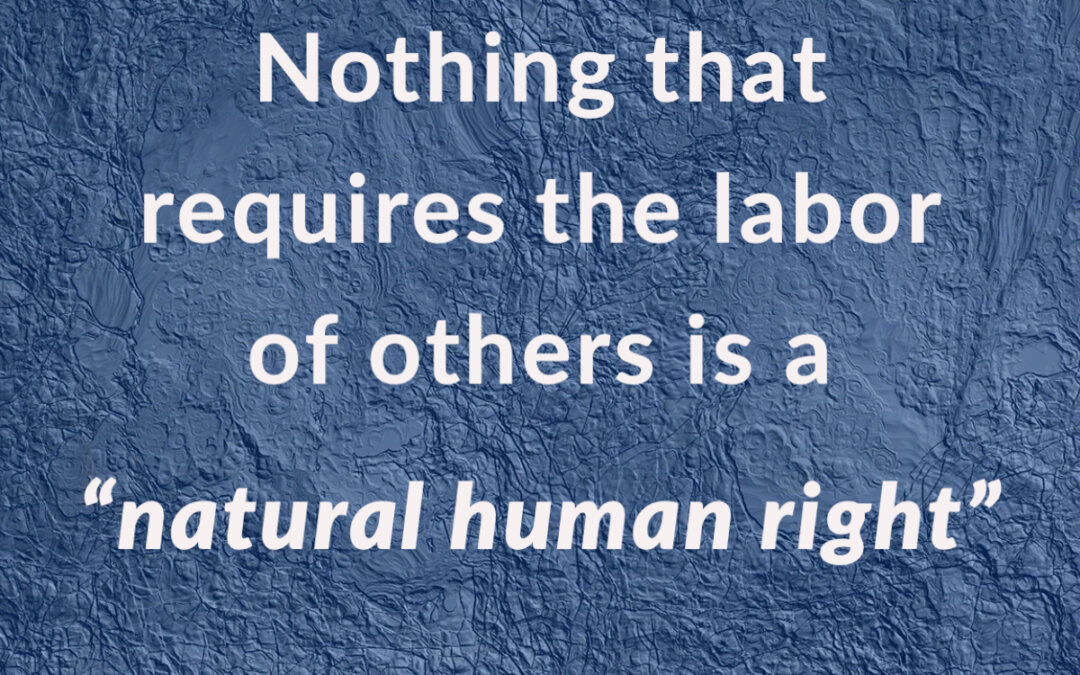
Natural Human Rights
Nothing that requires the labor of others is a natural human right.

Nothing that requires the labor of others is a natural human right.


Markets of some sort will exist even under the most unfavorable conditions.
When people are less trustworthy, more must be spent to ensure safe
transactions. As the cost of security mounts, the prices of goods can increase to
the point where many people cannot afford them.

…there are two passions which have a powerful influence on the affairs of men. These are ambition and avarice; the love of power, and the love of money. Separately, each of these has great force in prompting men to action; but when united…in the same object, they have in many minds the most violent effects.

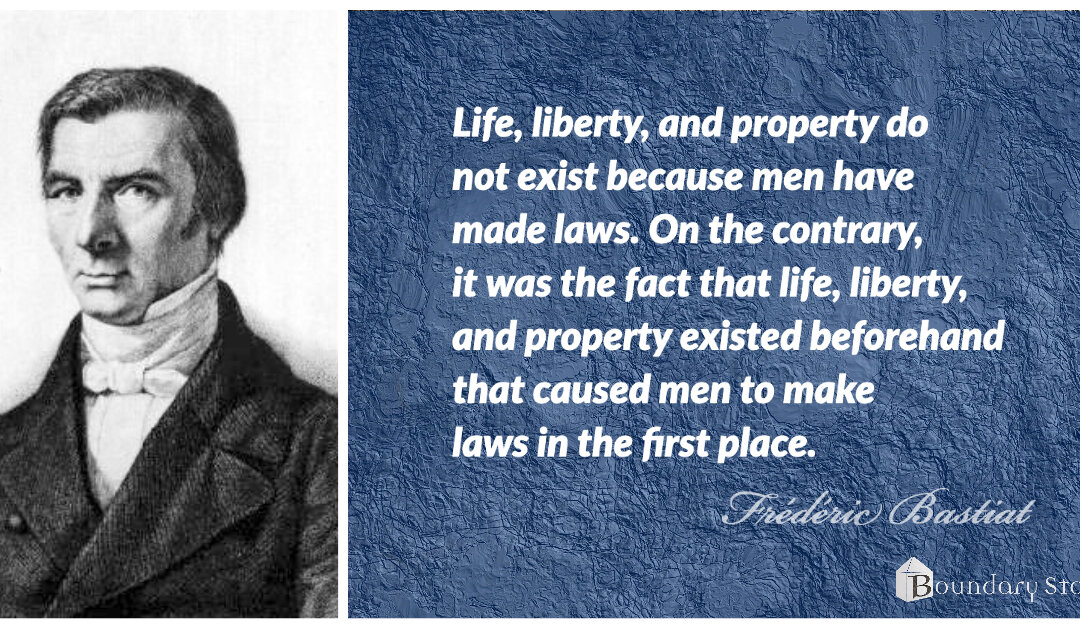
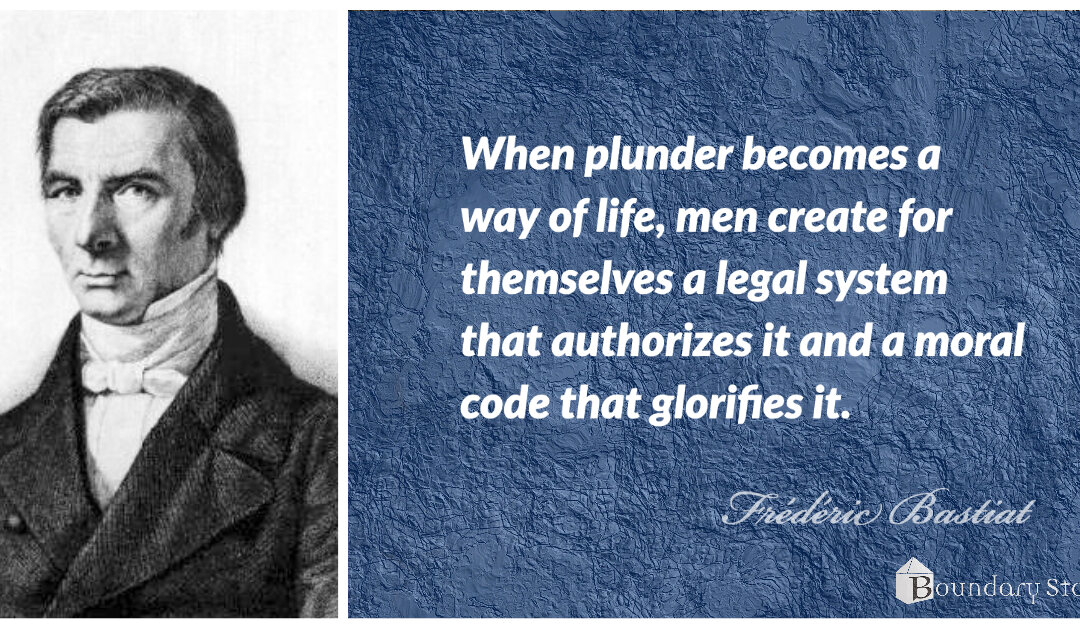
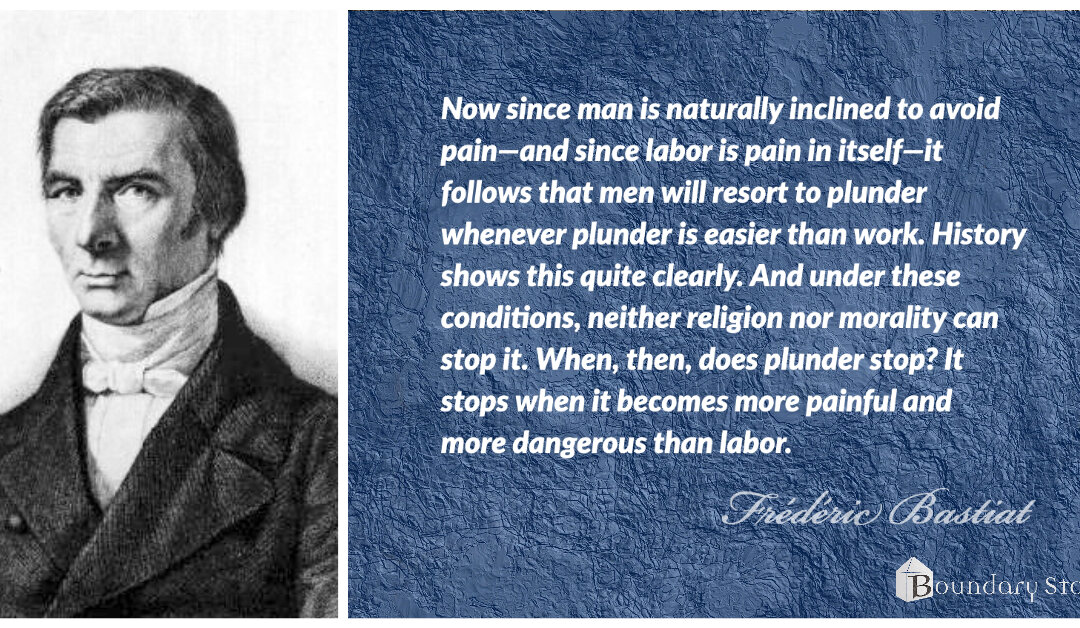
Now since man is naturally inclined to avoid pain—and since labor is pain in itself—it follows that men will resort to plunder whenever plunder is easier than work. History shows this quite clearly.

Have you recently heard the phrase, “follow the science?” Good theology and good science are never in conflict, but we must keep them in proper priority.

Boundary stones have long been used to mark property lines. The biblical curse in Deuteronomy 27:17 NIV, Cursed is the man who moves their neighbor’s boundary stone,” was one among many that Israel’s priests called out when the people were entering the promised land in the Old Testament.

Foundational issues are those that define the “watersheds” for our lives and our cultures. Dr. Cleveland explains.

Boundary Stone is committed to keeping the extraordinary textbooks written by Clarence Carson in print and updating them to make them easier to use with today’s students.
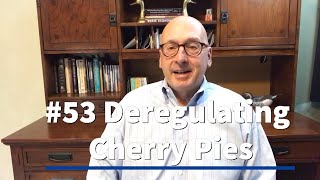
How many cherries should there be in a cherry pie?
Who should decide? Manufacturers? Industry governing boards? Government?
Does the free market or government experts do a better job determining this?
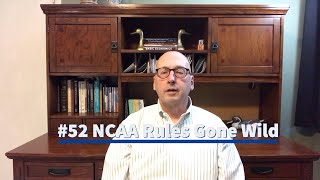
Is it surprising the NCAA finds rules violations on a campus they investigate?
What happens when we get too many rules?
Why do some think we need more regulations by Washington?
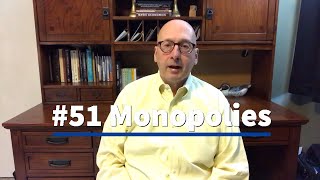
What controls monopolies from taking advantage of consumers?
Does government regulation restrain them, or actually create monopolies?

Have we overcome the problem of economic scarcity?
Aren’t the quantity and variety of goods available on American grocery store shelves proof of this?
What does economic scarcity really mean?

What makes an item capital rather than merely a consumer good?
What is circulating capital?
How does government manipulation of interest rates send false signals to businesses?
What are the consequences of these false signals?

Is inflation an expected rise in general prices?
Is that what is always meant?
Dr. Cleveland explains the myth about the meaning of inflation.

Did Dodd-Frank fensure that banks would take fewer risks?
Is it better for consumers when we have fewer, larger banks?
What led to the 2008 financial collapse?
What did Fannie Mae and Freddie Mac do that provided the fuel for the collapse?

What do you need to know about the Federal Reserve?
What happens when the people begin to think the government can and should provide for them?